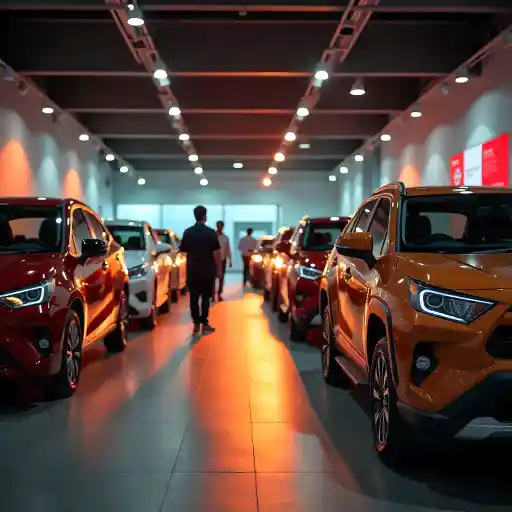India’s auto sector witnessed a mixed performance in July 2025, with leading carmakers reporting varied sales figures amid evolving consumer trends, inventory recalibrations, and cautious buying sentiment.
Maruti Suzuki, the country’s largest automaker, recorded a modest 3% year-on-year (YoY) growth, with total vehicle sales reaching 1,80,526 units, compared to 1,75,041 units in July 2024. This includes 1,40,570 units sold in the domestic market, 8,211 units supplied to other OEMs, and 31,745 units exported. While the overall trajectory remains positive, Maruti noted persistent headwinds in the domestic passenger vehicle segment.
Hyundai Motor India Ltd. (HMIL) reported a 7% decline in total sales, dropping to 60,073 units from 64,563 units in July last year. Domestic sales stood at 43,973 units, down from 49,013 units YoY, while exports rose slightly to 16,100 units, compared to 15,550 last July. Despite the drop in volume, Hyundai recorded a major milestone — SUVs accounted for 71.8% of its domestic sales in July, the highest share in its history.

Tata Motors experienced a steeper fall, with passenger vehicle sales down by 12% YoY, totaling 39,521 units in July. The company attributed the decline to a high base effect from the previous year and ongoing portfolio transitions in select segments. Including exports, the total passenger vehicle volume stood at 40,175 units. However, Tata’s EV division stood out, recording its highest-ever monthly sales with 7,124 electric vehicles, marking a 42% YoY increase.
On a positive note, Toyota Kirloskar Motor reported a 3% YoY growth, delivering 32,575 units in July 2025. The brand continues to benefit from strong demand for its premium SUVs and hybrid offerings, maintaining resilience in a market facing diverse challenges.
Mahindra & Mahindra Ltd. (M&M) emerged as one of the strongest performers of the month. The company posted a robust 26% YoY growth in total vehicle sales, reaching 83,691 units, including exports. Its SUV portfolio, featuring popular models like the Scorpio-N and XUV700, continued to perform exceptionally well, especially in rural and semi-urban markets. The company also saw growing traction for its new-age electric and hybrid offerings.
Industry Outlook
The mixed sales results in July highlight the industry’s transition into a consolidation phase following the post-pandemic boom. While SUV demand remains the dominant trend across brands, the overall passenger vehicle segment is navigating challenges such as:
- High interest rates and elevated vehicle costs
- Fluctuating fuel prices
- Inventory realignments ahead of the festive season
Auto manufacturers are gearing up for a potential sales rebound starting September, fueled by festive buying patterns and new model launches.
Looking ahead, the industry anticipates a dynamic second half of the year. Key players like Tata Motors, Hyundai, and Maruti Suzuki are preparing new EV and hybrid launches, which are expected to re-energize consumer sentiment and drive momentum in the Indian auto sector.
